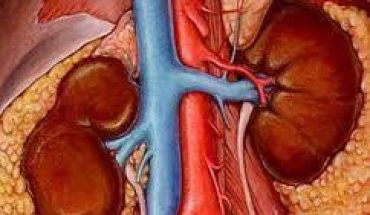Lupus is a chronic inflammatory condition that causes the body’s immune system to attack its own tissues and organs. This condition may affect several different systems within the body. These may include the joints, the skin, the kidneys, the blood cells, the heart and the lungs.
Lupus is more prevalent in women than in men and has four main types. These are Systematic Lupus Erythematosus, Drug-Induced Lupus Erythematosus, Discoid Lupus Erythematosus and Neonatal Lupus. Of the four, Systematic Lupus Erythematosus is the most common and the most serious. There are no identical cases of lupus. The symptomsoflupus may appear suddenly or develop slowly. The symptomsoflupus may be either mild or severe and may be either temporary or permanent. The majority of lupus sufferers have episodes or “flares” that are characterized by periods when the symptoms of lupus appear worse, then improve or disappear totally for a time. Lupus though serious can be treated and in cases, if identified, might be prevented by knowing the risk factors.
Symptoms of Lupus
The symptoms of lupus will ultimately depend on what area of the body the disease attacks but generally, the symptoms of Lupus include tiredness/ fatigue, fluctuation in weight (loss/gain), joint pain, stiffness or swelling, a butterfly- shaped facial rash that covers the cheeks and the nose (malar rash), lesions on the skin that worsen upon exposure to sunlight, mouth sores, alopecia ( hair loss), Reynaud’s Phenomena (This condition causes the fingers and toes to turn white or blue when exposed to the cold or during periods of stress), shortness of breath, chest pain, dry eyes, anxiety, depression and even amnesia (memory loss).
Causes of Lupus
Lupus is an autoimmune disease, which means that the immune system is not attacking foreign matter such as bacteria and viruses but instead attack healthy tissues. This eventually causes inflammation of the joints, the skin, the kidneys, the heart, the lungs, the blood vessels and even the brain. Medical professionals are unsure of the exact causes of Lupus but they theorize that Lupus occurs as a result of a combination of factors including genetics and the environment in which we live. Doctors believe that a person can inherit traits that will make them more susceptible to the symptoms of lupus if they come in contact with a virus or a drug within their environment which will act as a trigger for lupus.
Risk factors for the symptoms of lupus
- Gender (lupus more common in women)
- Age (lupus affects people of all ages including babies but is most diagnosed between the ages of 15-40)
- Race (lupus is more common in people of Black, Hispanic and Asian descent)
- Sunlight (sunlight causes skin lesions in lupus sufferers and is also a trigger for the lupus susceptible)
- Certain prescription drugs (Drug-induced lupus is caused by prolonged use of drugs like Antipsychotic Chlorpromazine)
- Exposure to chemicals (mercury and silica)
- Cigarettes (smoking triggers lupus)





